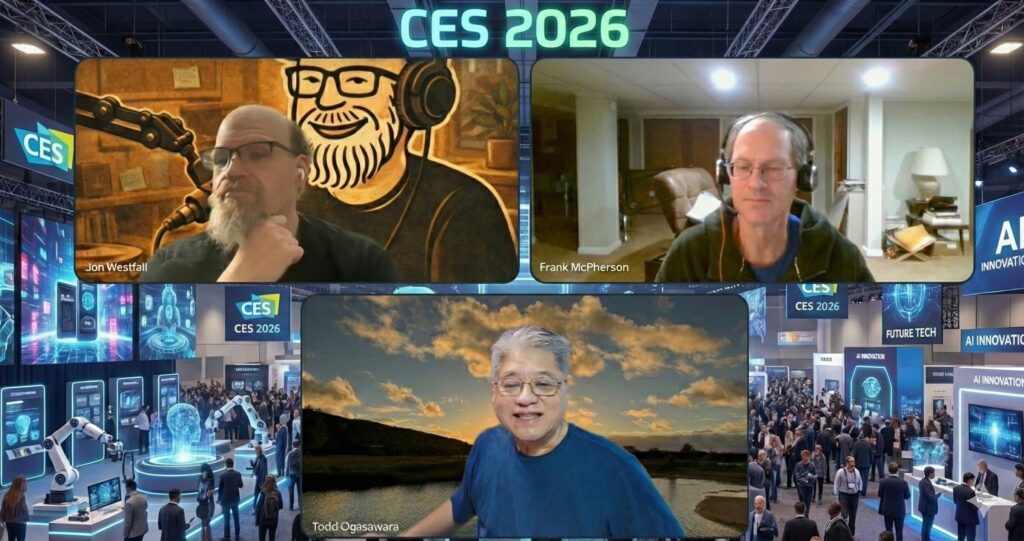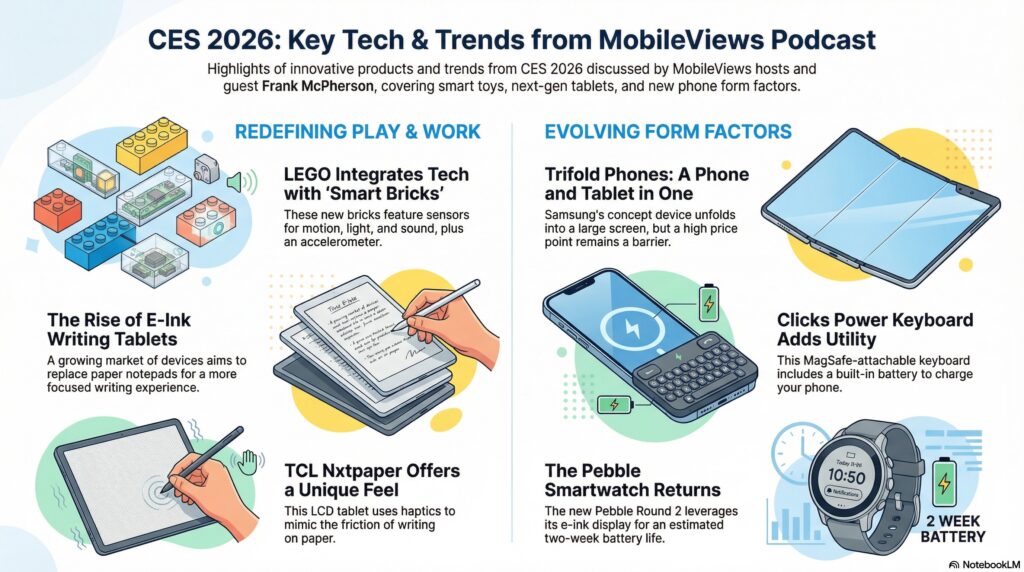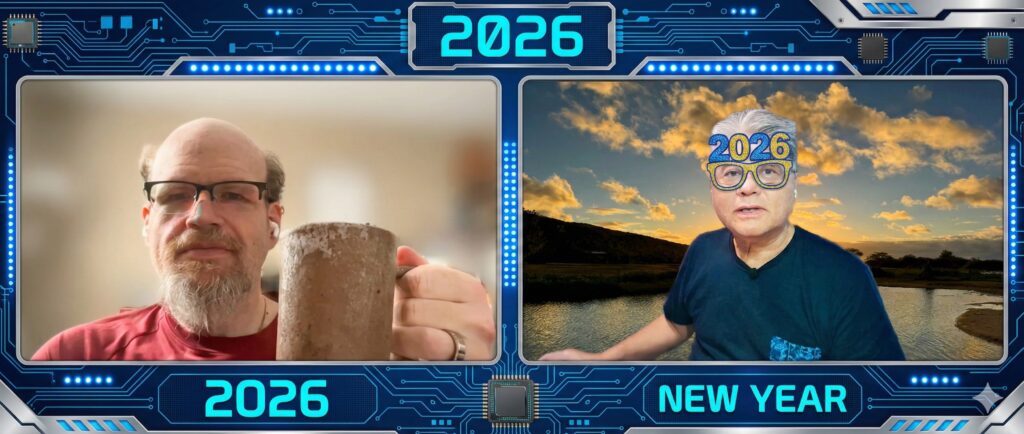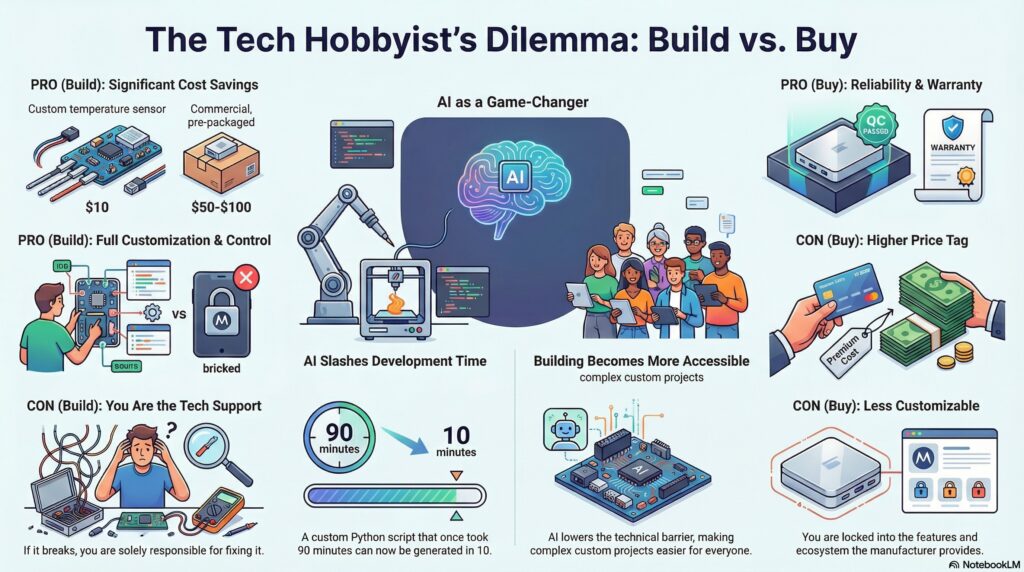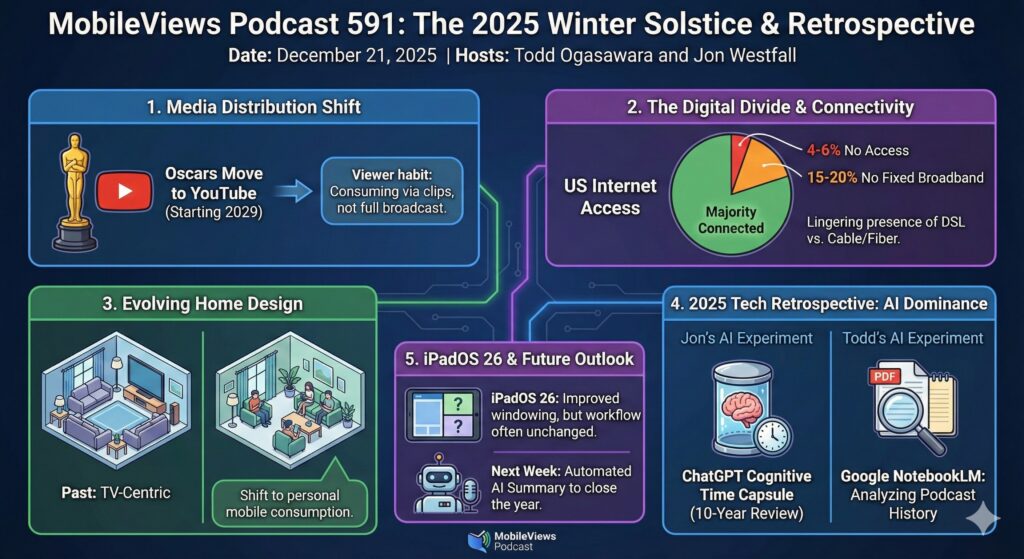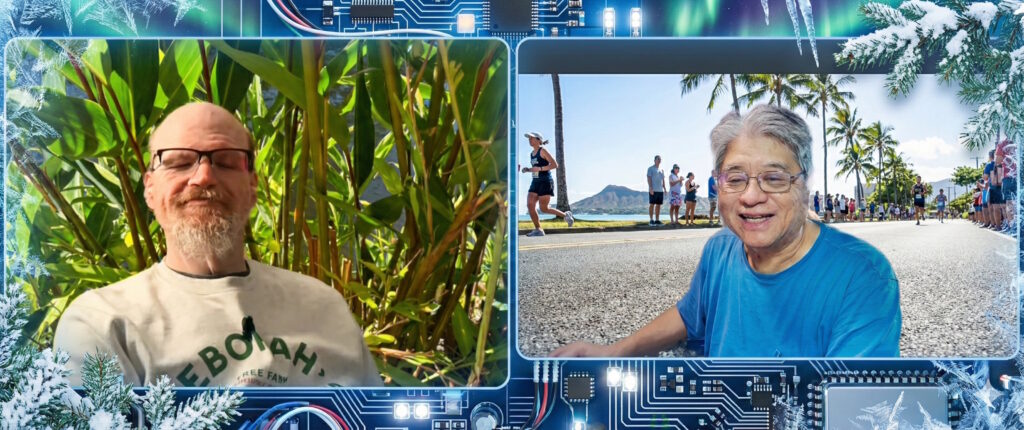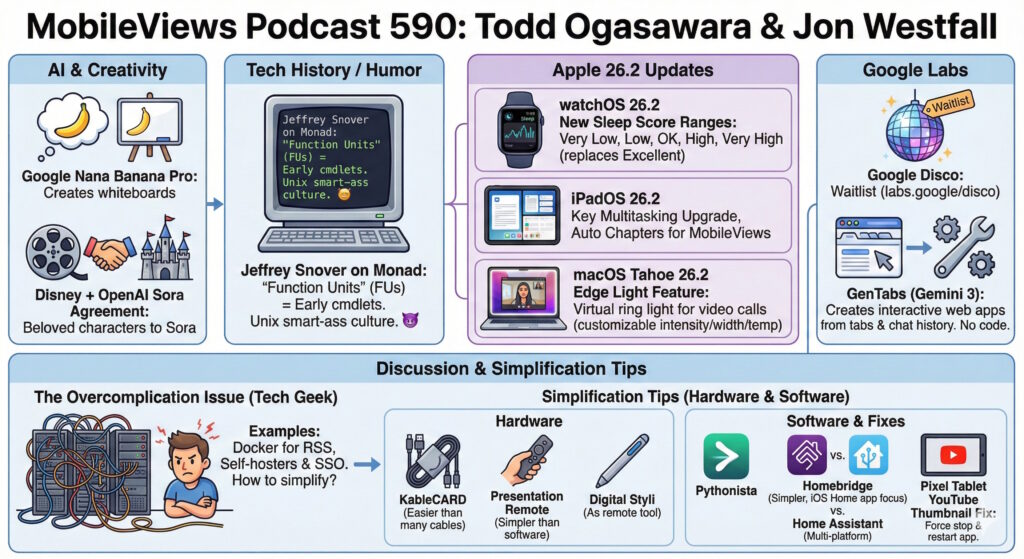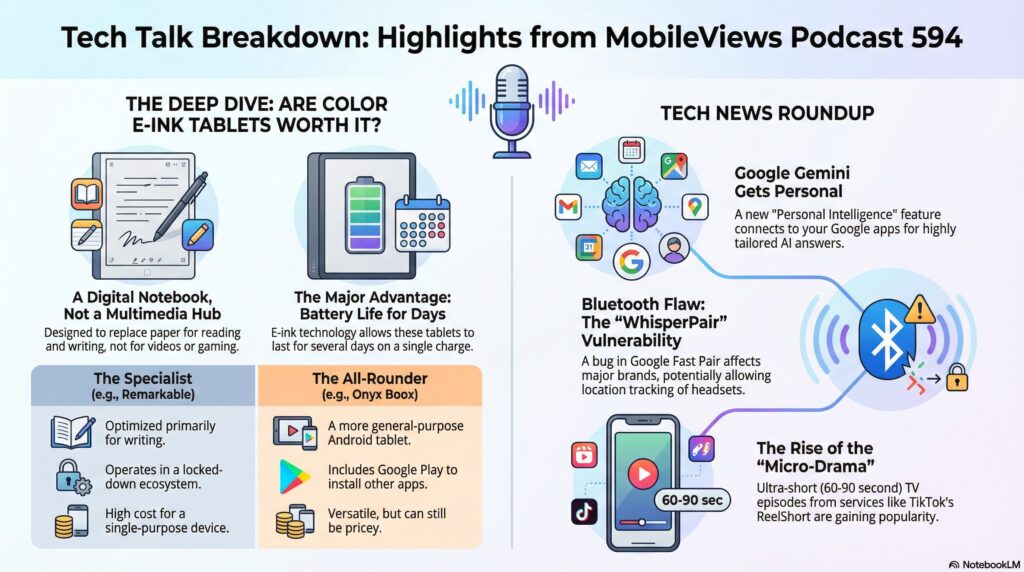
I sat down for MobileViews Podcast 594 with my longtime friends Sven Johannsen and Frank McPherson. Our usual co-host, Jon Westfall, was away, but we had plenty to cover, ranging from the bite-sized future of entertainment to a massive deep dive into the world of color E-ink tablets.
Note: I prompted Google Nano Banana Pro to convert a screenshot of our Google Meet video call and approximate what the photos of us would look like on a color e-ink tablet.
We kicked things off by discussing a fascinating trend in East Asia: micro dramas. Specifically, a TikTok subsidiary called Pine Drama is producing miniseries with episodes lasting only 30 to 90 seconds. These “video comic strips” are designed to be highly addictive, and while I have a short attention span, I’m curious to see if this ultra-short format translates well to global audiences.
On a more serious note, we touched on a security vulnerability called Whisper Pair. This bug affects several major Bluetooth headset brands—including Sony, Google, JBL, and Jabra—allowing for potential location tracking if an attacker is within 14 meters. If you use earbuds from these brands, I recommend checking the specific lists online to see if your hardware is vulnerable.
I’ve been testing Google Gemini’s personal intelligence features lately, which are surprisingly good at “buttering you up” by knowing your interests in Star Trek or Star Wars. This led to a broader discussion about the AI Divide. With subscriptions like Gemini Pro or Copilot Pro costing around $20 a month, we are quickly moving toward a society of “haves and have-nots” regarding high-level tech tools. We also noted how this digital divide manifests in the real world.
The heart of our conversation was a deep dive into color E-ink tablets, led by Frank, who has become a true connoisseur of the medium. We compared several major players in the market:
Frank emphasized that for him, writing is about memory and engagement during meetings. While an iPad has more utility, E-ink offers reflective technology that is easier on the eyes and provides a battery life that lasts for days rather than hours.
After hearing Frank’s breakdown, I’m strongly leaning toward the Boox Note Air 5C. It’s available on Amazon for about $530 and includes a stylus that uses Wacom EMR technology, meaning I won’t even need to charge the pen.

Available via Apple iTunes.
MobileViews YouTube Podcasts channel
MobileViews Podcast on Audible.com
